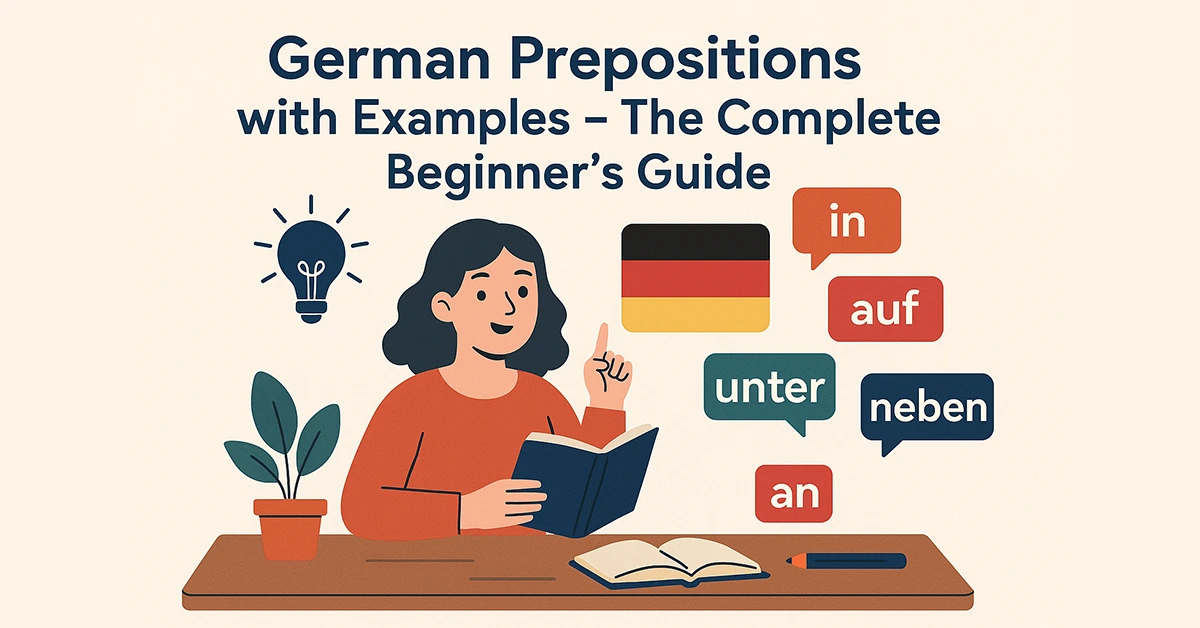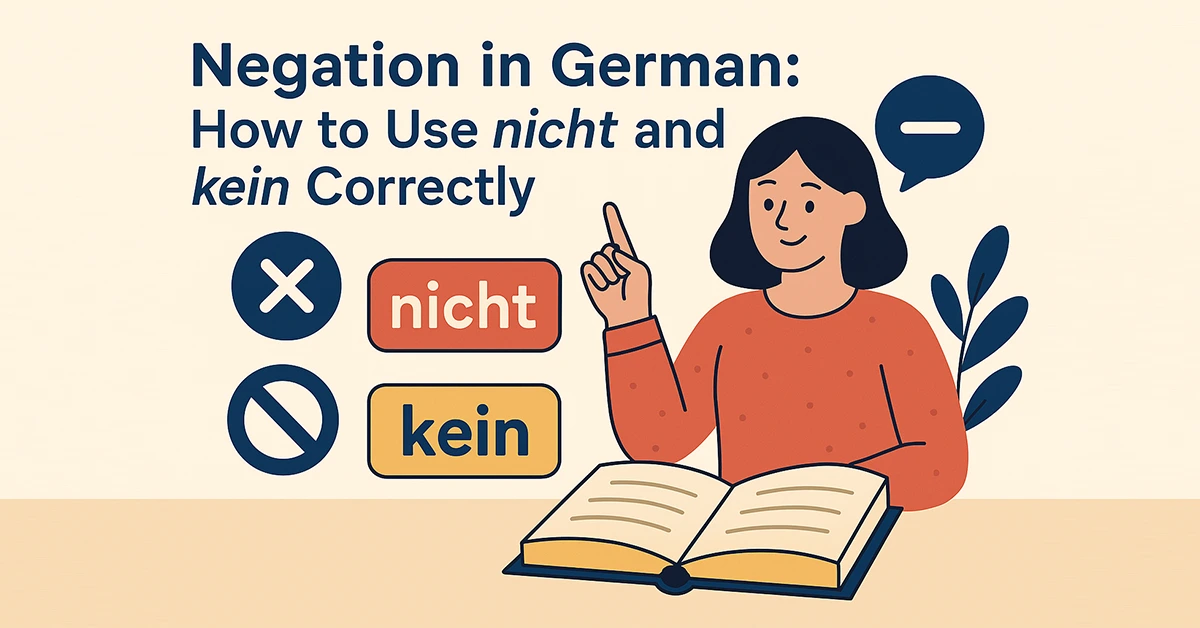beginner German grammar
-

German Prepositions with Examples – Complete Beginner’s Guide
Learn how to use German prepositions with real-life examples, tables, and tips. Covers accusative, dative, genitive, and two-way prepositions for beginners!
-

Negation in German: How to Use nicht and kein Correctly
Learn how to use nicht and kein in German with clear explanations, real-life examples, and practical tips. Master German negation step by step in this guide.